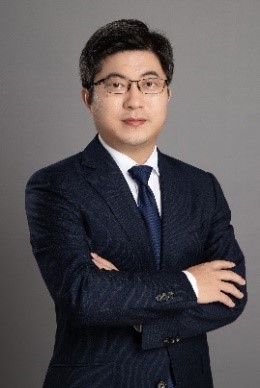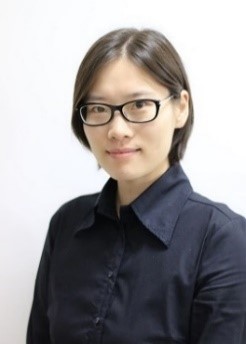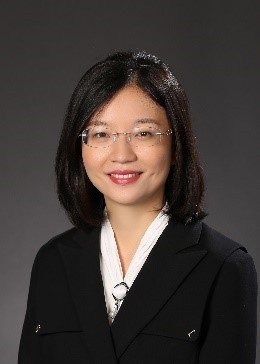Modeling and Control of Soft Robots: Opportunities and Challenges
软体机器人建模与控制——机遇与挑战
Panelists:
Ø Guoying Gu (Shanghai Jiao Tong University, China)
Ø Li Wen (Beihang University, China)
Ø Tiantian Xu (Shenzhen Institute of Advanced Technology, Chinese Academy of Sciences)
Ø Huichan Zhao (Tsinghua University, China)
Chair: Min Wu (China University of Geosciences, China)
Abstract: This plenary panel session explores the opportunities and challenges in the modeling and control of soft robots, featuring presentations from four distinguished experts who will share their latest research findings. The topics include the modeling and control techniques for soft robot actuators and systems, bio-inspired design applications of soft robotic arms replicating octopus movements, high-precision trajectory control and multi-robot coordination of magnetic-driven micro-robots in medical applications, and the integration of dielectric elastomer actuators in soft robots to enhance motion control efficiency through high-power-density artificial muscle technology. The plenary panel session offers a valuable platform for researchers and engineers to engage in meaningful discussions, exchange innovative ideas, and examine the latest developments and future directions in soft robotics technology.

Guoying Gu received his B.S. degree in Electronic Science and Technology from Shanghai Jiao Tong University in 2006 and his Ph.D. degree in Mechanical and Electronic Engineering from the same university in 2012. He is currently a Professor at the School of Mechanical Engineering, Shanghai Jiao Tong University. Professor Gu was a Humboldt Fellow at the University of Oldenburg, Germany, and has been a Visiting Scholar at the Massachusetts Institute of Technology (MIT), the National University of Singapore, and Concordia University.
His main research interests are soft robotics, bioinspired and wearable robots, and smart materials for sensing, actuation, and motion control. He has published more than 120 papers in renowned journals and conferences, including Science Robotics, Science Advances, Nature Biomedical Engineering, Nature Reviews Materials, Nature Materials, Nature Communications, IEEE Transactions on Robotics, Advanced Materials, Soft Robotics, and Science China, among others. Additionally, he has authored several book chapters and conference proceedings. Professor Gu has received prestigious awards such as the National Science Fund for Distinguished Young Scholars and the XPLORER Prize. He currently serves as Associate Editor of the journal Soft Robotics and has previously served as Associate Editor for IEEE Transactions on Robotics and IEEE Robotics and Automation Letters. He is also involved in editorial activities for various other journals and has served as chair, co-chair, associate editor, or program committee member for numerous international conferences and symposia.

![]() Li Wen received his Ph.D. degree in Mechanical Engineering from Beihang University, Beijing, China. He is currently a Professor and the Head of the Mechatronics and Automation Institute at the Department of Mechanical Engineering, Beihang University. In 2024, he received the Distinguished Scholar Award from the National Science Foundation of China.His main research interests include bio-robotics, soft robotics, and robotic intelligence. He focuses on developing robots capable of safe and efficient interactions with humans and the environment, particularly for applications in deep-sea, aerospace, and medicine. Dr. Li has published over 120 papers in top-tier journals such as Science Robotics, Science Advances, Nature Communications, IJRR, and IEEE Transactions on Robotics. His representative work has been featured in leading scientific media, including Nature, Science, MIT Technology Review, and BBC.
Li Wen received his Ph.D. degree in Mechanical Engineering from Beihang University, Beijing, China. He is currently a Professor and the Head of the Mechatronics and Automation Institute at the Department of Mechanical Engineering, Beihang University. In 2024, he received the Distinguished Scholar Award from the National Science Foundation of China.His main research interests include bio-robotics, soft robotics, and robotic intelligence. He focuses on developing robots capable of safe and efficient interactions with humans and the environment, particularly for applications in deep-sea, aerospace, and medicine. Dr. Li has published over 120 papers in top-tier journals such as Science Robotics, Science Advances, Nature Communications, IJRR, and IEEE Transactions on Robotics. His representative work has been featured in leading scientific media, including Nature, Science, MIT Technology Review, and BBC.
Dr. Li has received numerous accolades, including the Steven Vogel Young Investigator Award and the Xiong Youlun Young Scientist Award in 2020. He currently serves as an Associate Editor for IEEE Transactions on Robotics, International Journal of Robotics Research (IJRR), and Soft Robotics, and is an editorial board member for Bioinspiration and Biomimetics.

![]()
Tian-Tian Xu received her Ph.D. degree from the University of Pierre and Marie Curie, Paris, France, in 2014. She completed her Master's degree at École Centrale Paris in 2010 and her engineering degree at École Supérieure de Mécanique et d'Aérotechnique (ESMA) in 2009. Dr. Xu is currently a Professor at the Shenzhen Institutes of Advanced Technology, Chinese Academy of Sciences, where she served as an Associate Researcher from 2016 to 2020. She was a Postdoctoral Fellow at The Chinese University of Hong Kong from 2014 to 2016.
Her research interests focus on magnetic-controlled microrobot navigation, multimodal movement of microrobots, soft film-based microrobots, cooperative control of robots, and continuum soft surgical robots. She has published over 30 papers in prestigious journals, including IEEE Transactions on Robotics (TRO), T-Cyber, TMECH, and TASE, with 6 of her papers being ESI high-cited. Dr. Xu has received several honors, including the NSFC Excellent Young Scholar Award in 2020, the Best Application Paper Award at IROS 2019, and the Second Prize of the Wu Wenjun Natural Science of Artificial Intelligence Award in 2021 as the first author, as well as the CAA Young Scientist Award. She serves as an Associate Editor for IEEE Transactions on Robotics (TRO), IEEE Transactions on Mechatronics (TMECH), and IEEE Transactions on Automation Science and Engineering (TASE).
 Huichan Zhao received her B.S. degree in Mechanical Engineering from Tsinghua University in 2012 and her Ph.D. degree in Mechanical Engineering from Cornell University in 2017. She was a postdoctoral researcher at Harvard University from 2017 to 2018. Dr. Zhao joined Tsinghua University in 2018 and is currently an Associate Professor in the Department of Mechanical Engineering.
Huichan Zhao received her B.S. degree in Mechanical Engineering from Tsinghua University in 2012 and her Ph.D. degree in Mechanical Engineering from Cornell University in 2017. She was a postdoctoral researcher at Harvard University from 2017 to 2018. Dr. Zhao joined Tsinghua University in 2018 and is currently an Associate Professor in the Department of Mechanical Engineering.
Her research interests include soft robotics, bioinspired robotics, smart materials, flexible sensors and actuators, and human-robot interaction. Dr. Zhao has published over 40 papers in leading journals such as Nature, Science Robotics, Nature Communications, IEEE Transactions on Robotics, and Advanced Functional Materials. She holds more than 10 patents, with her work being cited over 2,700 times according to Google Scholar. Dr. Zhao has received numerous honors, including being named in Forbes China’s 30 Under 30 in 2018 and MIT Technology Review’s Innovators Under 35 China in 2020. She was awarded the Xiong Youlun Zhihu Excellent Young Scientist Award and The Alibaba Damo Academy Young Fellow Award in 2021. She served as an Associate Editor for IEEE Transactions on Robotics (T-RO) from 2021 to 2024 and currently serves as an Editor for T-RO. Her work focuses on bioinspired robotic systems, including soft robots, microrobots, wearable exoskeletons, and legged robots, as well as functional components such as artificial muscles, force sensors, variable stiffness devices, and fluidic actuators. She is also exploring intelligent materials like dielectric elastomers, flexible lightwave materials, and shape-memory materials for robotic applications.